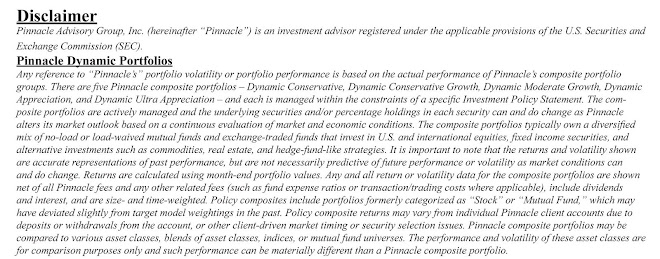Last week I found myself discussing the Natural Disaster Playbook with several clients. This “playbook” is followed by institutional investors with little variation and is employed during unexpected or exogenous events like earthquakes, floods, tsunamis, pandemics, etc. It is also often used for non-natural disasters such as terrorist attacks, assassinations, and any other event that is unexpected and not already discounted by the market. The playbook goes like this: When a natural disaster occurs the reaction of the general public is fear and panic. In such a situation the media is often an enabler of emotional reactions to the event as video is played throughout the 24 hour news cycle. “Experts” are interviewed with dire predictions. In such situations, markets attempt to instantly discount the impact of the tragedy and inevitably panic selling ensues. By definition, the selling overshoots the true fundamental impact of the event creating a buying opportunity for steely-eyed institutional dip buyers. As the smoke clears and the panic subside, it becomes clear that the world isn’t coming to an end and although the event is tragic, in almost every case the global economy continues with little pause. In fact, the odds are that subsequent government spending to recover from the disaster causes GDP to grow faster in the future. Does anyone remember the anthrax scare? How about bird flu, swine flue, and hoof and mouth disease? They all are covered in the playbook.
Buying when there is “blood in the streets” is a proven and time honored method of making money. Institutional investors who buy into disasters are considered to be expert value investors who rise above the panic of the crowd in order to do what they are paid to do, which is to exhibit the counterintuitive behavior of buying when everyone else is selling. The “playbook” includes the unwritten rule that buying a disaster is a low risk strategy from the perspective that clients understand that they wouldn’t do it, so even if it turns out that buying the dip was “wrong,” there is little career risk associated with the strategy as long as it is done in moderation.
There is one hitch to following the playbook, which is the notion of a “black swan” event. These events, by definition, happen very rarely, can’t be discounted in advance by the market, and actually do have dire consequences for investors. Because by definition these events are extremely unlikely to happen, it’s hard to know just what to do about them. The nuclear situation in Japan is a perfect example. The playbook says buy the tsunami and the earthquake, and I suppose we should buy the nuclear meltdown as well. However, if nuclear disasters don’t warrant just a little bit (heaven forbid…not panic) of extra concern, then what does? Until the reactors are under control, I will be in favor of cautiously applying the playbook in the context of unleveraged portfolios that are properly diversified and are positioned close to benchmark risk. Playbook or no playbook, sometimes it is wise to be patient.

